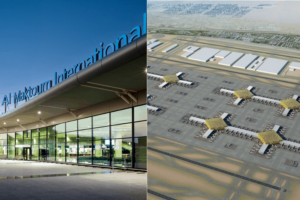An Overview of Dubai Tax Free Status, VAT, Customs Duties, and Other Taxes and Fees
Dubai attracts individuals for a variety of reasons, including job prospects, tax free earnings, lavish accommodations, and consistent sunshine. The emirate consistently ranks high on foreign direct investment indices, drawing investors and entrepreneurs.
Although many people mistakenly believe Dubai is entirely tax free due to its lack of income tax and numerous economic free zones offering benefits like corporate tax exemptions, zero customs duties, and full capital and profit repatriation, this is not the case. While income generated in Dubai is not taxed and most goods and services are free from sales tax, Dubai is not entirely devoid of taxes.
The Dubai Tax Free System
While Dubai has a tax free environment, it does impose some taxes and fees that businesses and individuals should be aware of. Here’s an overview of the main components of Dubai’s tax system:
Dubai Tax Free Status
There is no personal income tax or corporate tax (being introduced in future) in Dubai. In addition, there are tax free zones in Dubai where companies are exempt from paying taxes or a set period of time. This policy was designed by the leaders of the UAE to encourage economic growth and development. This decision proved to be extremely successful in transforming Dubai into a thriving commercial hub.
Dubai Tax Free Zones and Benefits
One of the most significant advantages of Dubai’s tax free status is the existence of tax free zones. These free zones are designated areas in which businesses are exempt from paying taxes for a set period of time.
Personal Income Tax
Dubai does not have a personal income tax system in place. This is a significant advantage for individuals and it has helped to make Dubai an attractive destination for high-net-worth individuals.
Corporate Tax
There is no corporate tax in the UAE. However, there is corporate tax at an emirate level. Recently, the United Arab Emirates (UAE) unveiled modifications to its existing legislation. Starting from the financial year on June 1st, 2023, a federal Corporate Tax (CT) will be implemented on the earnings of any UAE-incorporated LLC, PSC, PJSC, or other mainland business entities. Additionally, foreign legal entities operating in the UAE and branches of both foreign and UAE companies will be taxed.
The planned tax rate is set at 9%. This implementation aims to ensure the UAE’s adherence to the OECD’s Base Erosion and Profit Shifting (BEPS) initiative. Companies that fall under the CT’s purview must register with the Federal Tax Authority to secure a tax registration number.
Value Added Tax (VAT)
View this post on Instagram
The current VAT rate in Dubai is 5%, which is lower than many other countries. Businesses that have an annual turnover of more than AED 375,000 (approximately $102,000) are required to register for VAT and charge it to their customers.
VAT Registration and Compliance
Businesses that are required to register for VAT must do so within 30 days of reaching the annual turnover threshold. Once registered, businesses must charge VAT on their taxable supplies and issue tax invoices to their customers. In addition, businesses must keep accurate records of their VAT transactions and file VAT returns on a regular basis.
VAT Exemptions and Refunds
While most goods and services in Dubai are subject to VAT, there are some exemptions and zero-rated supplies. In addition, businesses that are registered for VAT may be eligible for VAT refunds on certain purchases.
Customs Duties
The rates vary depending on the type of goods and their value. There are various aspects to be considered when importing goods and below is some useful information to take into consideration.
Customs Duties in Dubai
The purpose of customs duties is to protect local industries by making imported goods more expensive. In Dubai, customs duties are administered by the Dubai Customs department.
Types of Goods Subject to Customs Duties
Most goods that are imported into Dubai are subject to customs duties. However, there are some exemptions and special arrangements in place for certain goods.
Dubai Customs Duty Rates
The rates of customs duties in Dubai vary depending on the type of goods and their value. The Dubai Customs department publishes a list of customs duty rates that is updated regularly.
Other Taxes and Fees

Dubai also has other taxes and fees that businesses and individuals should be aware of. These include excise tax, which is levied on specific goods such as tobacco and sugary drinks, and the Tourism Dirham, which is a fee that is charged to tourists staying in hotels. In addition, there are municipality fees that are levied on property owners and tenants.
Tourism Dirham
The Tourism Dirham is a fee that is charged to tourists staying in hotels in Dubai. The fee is calculated based on the length of stay. The Tourism Dirham is used to fund tourism-related initiatives in Dubai.
Dubai Municipality Fees
Municipality fees are fees that are levied on property owners and tenants in Dubai. The amount of municipality fees that are charged depends on the type of property and its location.
Final Thoughts On Dubai’s Tax Free Status
Dubai may not be entirely tax free, but it offers many tax benefits and investor-friendly policies that can benefit those who choose to make it their home. Despite the existence of various taxes, the absence of personal income tax or federal corporate tax at a national level, as well as the presence of tax free zones, make Dubai a highly attractive destination for businesses and individuals alike.
Although there will be a new corporate tax being implemented, the proposed rate of 9% is lower than most other countries and the most competitive among the UAE’s GGC neighbours. Expats who can establish tax residency in Dubai and are from countries that have signed double taxation treaties may find the tax rate significantly lower than what they would face in their home country.
With the above being said, businesses and individuals should carefully consider the costs and benefits of doing business and living in Dubai, and should consult with tax professionals and advisors as needed.
You might also like our latest stories.
More to discover
Staycation Review: FIVE Palm Jumeirah
FIVE Palm Jumeirah: The Ultimate Party Destination Nestled on the [...]
Read MoreJul
‘Kids Go Free’: Dubai’s Summer Deals for Families
You can plan a family getaway for less this summer [...]
Read MoreJun
American Rock Legends KISS to Perform in Dubai
Tickets are on sale now. Brace yourselves for an epic [...]
Read MoreJun
Dubai to be home to ‘world’s largest airport’
Dubai’s Al Maktoum International Airport aims to become the world’s [...]
Read MoreJun
8 wonderful things to do in Dubai this week June 5-June 11
Whether you're craving adventures, sunshine or live entertainment we've got [...]
Read MoreJun
36 great indoor activities in Dubai this summer
Exciting indoor activities to beat the heat! Dubai's summer heat [...]
Read MoreJun







